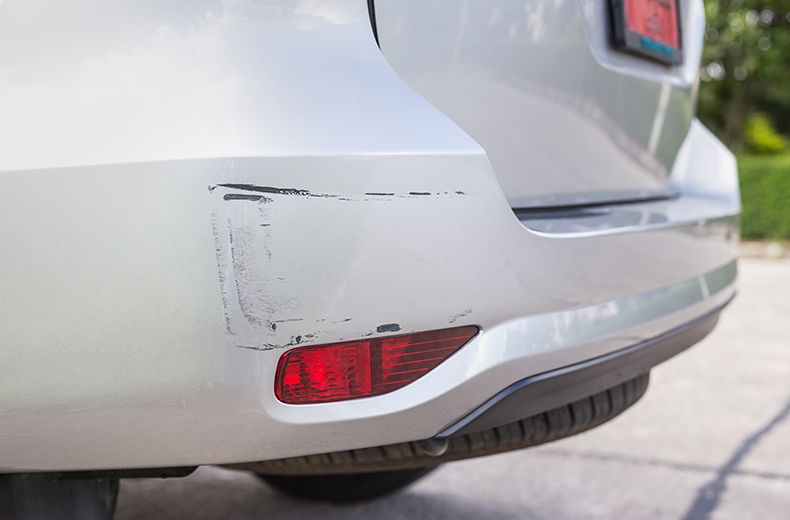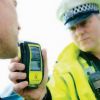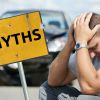If you need to claim on your insurance, you will risk losing your no claims bonus, which is why some motorists choose no claims discount protection.
In this know how guide, we look at what a no claims discount (NCD) is, how it works and whether you should protect it.
What is a no claims discount (NCD)?
A no claims discount (NCD) is a reward that is given to drivers who do not make a claim on their car insurance. Also called a no claim bonus, it implies you are a safer driver and therefore cheaper to cover.
Drivers who make no claims are eligible for a discount on their yearly premiums, and with RAC Car Insurance this can be anywhere up to 65%.
No claims discount (NCD) explained
There are a number of factors that can have an impact on your no claims discount. For example, if you make a claim then your discount will be reduced and in some cases removed altogether.
You can choose to pay to protect your discount - this is known as a protected no claims discount - and means that you can keep your discount, even in the event of making a claim.
Another important factor is the ability of your insurer to recover the costs from another party. Whether your car was stolen, involved in a hit and run, or accidently skids on a slippery road, if a claim is made and the insurer is not able to recover the cost from another party, then you will lose some, if not all, of your no claims discount.
Can I use my no claims discount (NCD) on more than one car?
Households with two cars will need to have two separate NCD, one for each car. This is because drivers are not allowed to share a discount that has been earned on one car and then try and split it between two separate vehicles. However, if you buy a new car then it is possible for your discount to be transferred.
Even though you can’t share your no claims discount between your cars, you are able to take your discount with you if you choose to switch insurers. Though the new policy and NCD features may not be identical, any claim history should still lead to a discount with your new insurer.
How do I get proof of my no claims discount (NCD)?
Proof of your no claims discount (NCD) can be requested from your insurer. It will be sent in writing, either via the post or email.
Your proof of no claims discount (NCD) may also appear on your car insurance renewal or cancellation document.
What is no claims discount (NCD) protection?
No claims discount protection typically means a policyholder can make a claim on their car insurance without losing their no claims discount altogether.
There is usually a limit on the number of claims a driver can make over a period of time while still retaining the discount. This varies from insurer to insurer, so do check details first.
With no claims discount protection, a driver is essentially paying an extra fee to protect the number of no claims discount they have built up. It could be infuriating to have driven for five years or longer, without experiencing even so much as a minor bump or scrape to your car, and then find yourself involved in an accident which could result in you losing some or all of your NCD.
- 7 car insurance myths debunked
- What to do after a car accident - should you say sorry?
- 12 ways you could accidentally invalidate your car insurance
- Windscreen repair
For example, if you haven’t protected your NCD with your insurer, you could lose five (or more) years’ worth of no claims discount if another driver was to reverse into your car in the supermarket car park and you needed to claim for repairs.
In this scenario, your no claims discount could be lost, and you’ll need to build it up all over again!
Is protecting my no claims discount (NCD) worth it?
Speak to your car insurance provider to establish how much extra you’ll be paying to protect your no claims discount. This may be affordable for you, or it might push the overall price of your policy above the maximum you’re prepared to pay.
If you switch providers and inform your new insurers that you have a certain level of no claims discount, the responsibility is on you to prove that. You’ll be asked to provide evidence - usually your previous insurer will show this on your renewal invite. You can also ask them to send on confirmation.
Bear in mind that not all insurers have the same terms and conditions for NCD. If you have five-plus years of discount and then make a claim, you may lose all of your no claims discount with one insurer, while another may just reduce the years to two or three.
It’s worth a conversation with your insurer to fully understand all the options when it comes to no claims discount and paying for protection.
For additional piece of mind, why not also review our car breakdown cover options.
5 Star Defaqto rated cover
RAC Comprehensive Car Insurance Plus has been given a 5 Star Rating by Defaqto. Get a quote online today.


No claims discount FAQ
- How much does 1 year no claims save?
A one-year no claims discount will save you up to 30% off your first year’s insurance total. Although this can vary drastically depending on make, model, and the details of your policy.
- How do I prove no claims as a named driver?
You will need to contact your current insurance provider to prove your no claims discount.
- Who gets no claims bonus main driver or policyholder?
The no claims discount is mostly only ever offered to the policy holder. However, this can be different with some companies and it is best to contact them with any questions.
- Is 9 years the maximum no claims bonus?
Yes, with most providers of car insurance, 9 years is the maximum number of years required to gain the highest level of no claims discount.
- Why has my insurance gone up after no claims?
Even with your no claims discount, you may notice that your premium has increased. This is due to external and economic factors.
- Will I lose my no claims bonus if I claim for windscreen?
No, claiming for a damaged windscreen damage will not impact your no claims discount.
- Can a named driver earn NCD?
No, a named driver on your car insurance policy cannot claim earn no claims discount.
- Do you lose your no claims bonus if you are a named driver?
It is unlikely that you will lose your no claims bonus if you are a named driver. The best course of action is to contact your provider and ask them.













